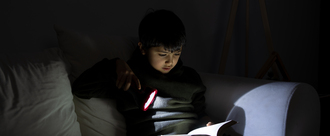-
Open Letter to The NZ Government to Take Action On Modern Slavery LegislationThe decision to delay modern slavery legislation affects everyone, from the beginning of the supply chain to the end consumer. Urgent action is needed. In July 2023, the Labour government announced its plan to draft a modern slavery disclosure law, requiring companies earning more than $20 million a year in revenue to publicly disclose and address the risks of modern slavery within their supply chains. Detailed advice, including advocating for due diligence, was received from advocacy groups and experts in modern slavery legislation. Significant progress was made on drafting legislation, covering both business and public sector supply chains. But, despite repeated urging from the public, it was not introduced into Parliament before the last election. Now it is your turn. We are depending on your government to do the right thing, to introduce this legislation into Parliament and make it law. But we have since been told that your government has “yet to make a decision” on this proposal (3). Not only does this lag put New Zealand behind other OECD countries, but it affects businesses that are trying to do the right thing as they continue operating in a market where unfair competition can thrive due to unethical labour practices. New Zealanders want legislative action on modern slavery. An open letter from the business community was written in 2021 along with a 37,000-strong public petition. In 2023, more than 6,000 people demanded that the then government stop delaying progress. In February this year, ethical investors urged you to act. There is no need for any more hold-ups. We ask once again that your National-led coalition government make urgent progress on this issue. We pride ourselves on being a country that cares, a place where everyone gets a fair go. By stalling work on a modern slavery law, aren't we falling short of that ideal? Prime Minister Luxon, in 2022 you said, “Something I feel very passionate about is modern slavery… I’ve been really passionate about [it] for a long time. That’s something I think we could do a better job of and have modern slavery legislation, and make sure that we’re holding ourselves up to a standard.” (4). We are holding you to your own standards. Please Introduce a Modern Slavery Act into New Zealand Law Now! Yours sincerely, Fair&Good Ethical Directory With the support of: Hagar NZ, Tearfund, World Vision, Trade Aid, Fairtrade, Sustainable Business Network, Ethically Kate, Mindful Money, Walk Free, The Wilberforce Foundation, Mindful Fashion, Kowtow, 27 Seconds, All Good, AS Colour, Addington Café, Aho Creative, Bennetto, Borneo Bags, Burrow&Be, Caritas, The Centre for Research on Modern Slavery (UoA), Collective Canvas, Common Good Coffee, Common Sense Organics, Conscious Copy, Crave Café, Direct Impact Group, NZ Ethical Employers, Ethos&Co, Fairfield Trust, Fairplay, Fashion Revolution, Grow Good, Good Gold, Hamodava Coffee, HEED Consulting, Holi Boli, House of March, The Human Trafficking Research Coalition, IncaFe Organic Coffee, Joyya, Just Kai, Karma Drinks, Kind Café, Krama&Co, The Lucy Foundation, Made Good, The Modern Day Slavery and Labour Exploitation Advocacy Group, Morning Cider, Pickers Pocket, Phat Philly, Reca, Recreate Clothing, Regina Scheyvens, Professor of International Development, ReMade Agency, Sawubona, Seeds, Side Hustle, The Salvation Army, UnionAID, Yeastie Boys, Ziwi Baby References: (1) Walk Free Global Slavery Index 2023 https://www.walkfree.org/global-slavery-index/ (2) World Vision Risky Goods Supply Chain Risk Report 2023 https://wvnzintegrationprod.blob.core.windows.net/pdf/WVNZ%20Risky%20Goods%202023%20Report-Final.pdf (3) Newsroom 18/1/2024 https://newsroom.co.nz/2024/01/18/modern-slavery-law-plans-up-in-air/ (4) Video Interview with Guyon Espiner, 7 June 2022 https://www.rnz.co.nz/news/in-depth/468615/how-christopher-luxon-is-rebranding-the-national-party2,158 of 3,000 SignaturesCreated by fair&good

-
Protect Te Aka Whai OraOur health system has failed Māori for far too long. Report after report has demonstrated institutional racism and exclusion of Māori leadership that has led to devastating outcomes and inequity. For all those years, hapū, iwi, health workers, lawyers, health researchers, and many more have fought for better, and called for practical solutions they knew would work. Te Aka Whai Ora (the Māori Health Authority) is the result of their vision for a health system that better honours Te Tiriti o Waitangi, and better cares for whānau. A truly Māori-led agency that has the power to resource and lift up kaupapa Māori, and iwi and hapū health services, can improve health for Māori, and all communities in Aotearoa. Without a clear plan to improve hauora Māori, the National, ACT, and NZ First parties have vowed to disestablish Te Aka Whai Ora. The coalition Government plan to introduce the disestablishment legislation just days before the hearing of the Urgent Waitangi Tribunal claim is set to begin. This bad-faith move restricts the jurisdiction of the Tribunal to fully consider this breach of Te Tiriti, and the impact on Māori. It is unacceptable for the Crown to unilaterally move ahead and block tangata whenua from being heard. We demand a health system that treats everyone fairly, in ways that uplift them and their whānau, and honours Te Tiriti o Waitangi. We stand with people on the frontline of the health system: allied, public, and mental health practitioners, nurses, doctors, and many more health professionals, who know Te Aka Whai Ora is important and necessary to deliver healthcare well. Disestablishment is a major threat to Māori health. That’s why we’re calling for the Government to change course now and protect Te Aka Whai Ora. https://www.youtube.com/watch?v=ZUTDpxDh90E19,579 of 20,000 SignaturesCreated by Stop Institutional Racism NZ

-
Grow the workforce: paid training in healthcare, education, and social work professionsWe are short 700 social workers, 940 psychologists, 1000 teachers, 1,050 midwives, 1,700 doctors, & 4,800 nurses to name a few. Our hospitals, GP practices, schools, mental health & social services are more stretched than ever. Dangerously low staffing levels & overworked professionals make for burnt-out workforces & inaccessible services. This means long waitlists for surgeries or specialist appointments & long wait times in ED. Delayed access to mental health assessments, treatment, crisis support, & suicide prevention. Family harm & child protection services stretched beyond capacity. Large class sizes in schools mean reduced capacity for individual learning needs to be met & homeschooling for parents when teachers are off sick. The ripple effect of workforce shortages is massive. More staff are needed but it’s nearly impossible to complete course requirements with the current cost of living. Students are burning out & dropping out of study at rates of up to 45%. They can’t afford to work for free when rent, food, & power still cost money. - Students training in professions with placement requirements complete between 500 & 2400 hours of unpaid training depending on registration requirements. Medical students complete 20-42 weeks of unpaid placements for 3 years (after a 3yr BSc Health Science). - Students are often required to live or work away from home to complete placements. The cost of double rent & the impact on part-time work opportunities are significant. For students with on-call requirements, maintaining paid work is almost impossible. - Students must cover course related costs such as textbooks, uniforms, immunisations, equipment, travel, parking, supervision, & childcare arrangements. $1000 course costs loans are insufficient to cover these expenses. - Students participate in paid work to pay their bills on top of unpaid placements, often working up to 80 hours a week to make ends meet. Students from backgrounds of hardship or those caring for tamariki/whānau get excluded from these professions as they have limited financial flexibility or capacity to take on high student loans, unpaid labour & course related costs. - Student hardship disproportionately affects Māori & Pasifika because of existing inequities in Aotearoa New Zealand. We need greater diversity & experience to better serve the needs of our communities but without financial support to study our professions are at risk of becoming more short-staffed & less diverse. Post-graduate students Support must also be available for post-graduate students undertaking placements as part of their registration requirements. Currently, postgraduate students are ineligible for student allowance. - Many degrees are completed at a post-graduate level via an applied/professional masters. - Registered psychology professions & psychotherapy are only available at postgraduate level. - Lifetime student allowance limits are significantly lower for those over 40 years of age. - Mature students’ only option is to take on huge student loans & living costs. Working for free while collecting debt is especially prohibitive for students with additional domestic, family, and financial responsibilities. We must incentivise New Zealanders to gain qualifications in registered professions. Tradies receive support through packages like the Apprenticeship Boost and Police are paid to train while provided bed and board. Paid training for our health, education, and social work professionals must become the norm too. The solution! Provide students with a universal, non-repayable, annually increasing stipend. We are calling on the government to pay students a universal stipend while they train in registered professions with compulsory placement requirements. This is non-repayable & should increase annually to reflect the year-on-year increase in placement hours, skill development, & responsibilities. First year undergraduate programs with placement requirements must start on at least equivalent to the training wage for Aotearoa New Zealand. Postgraduate students should start on at least equivalent to the living wage to reflect their existing qualifications & professional experience. What is a stipend? A stipend is not a wage. It is a tax-free fund to support students to cover living costs, enabling them to fully engage with their studies & placement requirements. A stipend does not make students employees. It will not affect training, practice, or supervision requirements. Year 1: Training wage (tax-free stipend) $32,084.64* Year 2: Minimum wage (tax-free stipend) $39,312.72* Year 3+: Living wage (tax-free stipend) $44,008.58* *Take home amount students would receive at the current rates. These should be reviewed & adjusted annually in line with equivalent wage rates. Additional allowances should be available for on-call requirements, mandatory therapy, & supervision costs. Please sign & share this petition for paid training in healthcare, education, & social work. Funded workforce development will improve accessibility to training, increase the diversity of staff, & enable better access to quality services for whānau & community. Follow Paid Placements Aotearoa’s advocacy on: Facebook https://www.facebook.com/PaidPlacementsAotearoa Instagram https://www.instagram.com/paid.placements.aotearoa/ LinkedIn https://www.linkedin.com/authwall?trk=bf&trkInfo=AQGfBgJOR0gsnwAAAY0K0NJQ4VSzObpB_5YpuuKfAs4gSu9gxg1BfhglPpZqhKz9ODj2xKAUWfio4DrWWjGr5yXqlQNvywhjI4U3p6L5VKxhaSXw35UEoahOPDPewg04X9Xqqrw=&original_referer=&sessionRedirect=https%3A%2F%2Fwww.linkedin.com%2Fin%2Fpaid-placements-aotearoa-nz-236384272%2F20,397 of 25,000 SignaturesCreated by Bex Howells
-
Support for all people with dementiaBringing people living with dementia together to work, share food, use their long learned skills and remind them that they are valued members of our society, helps keep people well for longer. It improves their quality of life and enriches our communities. But currently, the Ministry of Health only provides the financial support needed to attend daycare services to the full time carer of someone who is terminally ill, someone who has ongoing health or mental conditions or someone who has an age related disability. The carers needs are assessed based on their situation and the disability/illness of those they are caring for. They are then allocated a number of days per year to allow them respite from those they are caring for, or they can get financial support to bring the person who is ill to a daycare facility. People who live on their own or their carers are still in employment do not qualify for this support. Often resulting in people being unable to afford daycare programs that would greatly benefit their quality of life. Ensuring funding for people living with dementia, regardless of whether they have a carer or not, means enabling people to attend services where they can be part of a community while in a safe environment. Dementia can hit everyone, is not picky about age, or intelligence. When it hits a person who is young and therefore still working, it can take a while before it is recognised/diagnosed. Because of this, often people are lonely, having lost their job, their income and their working community. More and more people are living alone because of the loss of partners, and have no carers around. All people living with dementia deserve to be cared for and given opportunities to be part of a community.148 of 200 SignaturesCreated by Marian Weststrate
-
URGENT: We need to talk about child poverty in AotearoaWe all want tamariki to grow up surrounded by loving, thriving whānau within supportive communities where there are resources, opportunities and systems to enable them to flourish free of poverty. Prime Minister-elect Luxon has committed to keeping the Child Poverty Reduction Act (2018) and halving child poverty by 2028. This will take a concerted effort in several areas. Poverty is notoriously difficult to measure but here are some statistics PM-elect Luxon needs to know right now. • A record almost half a million Kiwis each month rely on food handouts from charity. This will increase at Christmas. Food parcels are not the answer. Our whole food system is broken, and kids are suffering. • Te Whatu Ora statistics this month show hospital admissions for babies and preschoolers for preventable illnesses are up more than 30 percent since June 2022 The situation is urgent. We want to show our new leaders the evidence-based policies that will help them fulfil their election promise to halve child poverty. Speaking on behalf of children in poverty; Child Poverty Action Group, Methodist Alliance, Presbyterian Support New Zealand, Methodist Mission Northern, NZ Council of Christian Services and the Paediatric Society of New Zealand. Please sign the petition to show how much people across Aotearoa care about child poverty, and help put pressure on the next government to meet with us ASAP.1,164 of 2,000 SignaturesCreated by Child Poverty Action Group CPAG

-
Open letter: Fund pay equity for care and support workers nowWhen care is in the community, whānau stay connected to the people and places we love. All of us want our family members to get the support they need to live independently and well. People who deliver care and support to our older ones, disabled whānau, and folk recovering from illness or injury are key to the infrastructure of care communities need to look after everyone. For far too long, their work has been undervalued because funding agencies and governments of all stripes have underpaid for work that has traditionally been done by women. We urge you to fund the pay equity settlement for all care and support workers as soon as possible. For over a year we have undergone a rigorous pay equity process. We have systematically proven and measured the undervaluation of care and support workers based on their gender. Thousands of hours and many resources have been devoted to analysis that was signed off at each milestone. Unions and employers are ready to make this happen. But your agencies that fund care and support work continue to lag behind on providing sufficient funding to deliver pay equity and have interfered in an evidence-based and prescribed process adhered to by employers and unions. As a result, too many workers are struggling to make rent payments and put food on the table while they’re made to wait. The need for care and support grows as our population ages while services lose staff to better paying professions and strain to recruit new people. We are calling on you to stop the delays and interference now so the claim can progress. The situation is now urgent and overdue. You have a huge opportunity to strengthen this cornerstone of our community health system, nourish services that care for families, and transform the lives of 65,000 workers. Aotearoa celebrated proudly in 2017 when unions won an historic pay increase for care and support workers following landmark legal wins championed by aged care worker Kristine Bartlett. We knew it wasn’t right that care and support workers were struggling to make ends meet while doing some of the most important work there is. Since then, their wages have regressed back to minimum wage while the cost of living has skyrocketed. Care and support workers change catheters and stoma bags, and make sure medicine is taken. They support families through the difficult changes that come with health problems. They assist disabled people to live independently at home. They show up for folk who don’t have friends or whānau to come to visit. They help people shower, turn over in bed to avoid pressure areas, and to live well. They support people through mental ill-health or addiction to keep going. They’re with loved ones at the end of their lives. Once again, it’s time to make sure care and support workers are paid what they’re worth. This time for good. Please fund the pay equity claim for all care and support workers urgently so we can reach a settlement. From, Public Service Association Te Pūkenga Here Tikanga Mahi, E tū, and New Zealand Nurses Organisation Tōpūtanga Tapuhi Kaitiaki o Aotearoa With the support of: Carers New Zealand Alzheimer’s New Zealand New Zealand Society of Diversional and Recreational Therapists Grey Power National Council of Women New Zealand Auckland Women’s Centre YWCA Kristine Bartlett Saunoamaali'i Dr. Karanina Sumeo, Equal Employment Opportunities Commissioner / Kaihautū Ōritenga Mahi Professor Katherine Ravenswood (AUT) Migrant Action Trust Gabriela Aotearoa New Zealand Migrante Aotearoa New Zealand New Zealand Council of Trade Unions Unite Union NZEI Te Riu Roa New Zealand Professional Firefighters Union MERAS Midwifery Employee Representation & Advisory Service Tertiary Education Union Te Hautū Kahurangi Tertiary Institutes Allied Staff Association National Union of Public Employees9,563 of 10,000 SignaturesCreated by PSA & NZNO & E tū
-
Deny Kelly-Jay Keen-Minshull Re-Entry Into AotearoaThis request is rooted not only in the impact of her visit in March this year, but also her extensive history of hateful speech and incitement of violence. Her return to Aotearoa would pose a significant threat and risk to public order and the public interest - this holds especially true for our takatāpui, transgender and gender diverse communities. Disinformation Project Researcher Dr Sanjana Hattouwa reported that after Keen’s visit to New Zealand, the amount of vitriol towards the trans community was “to a degree we’ve never studied before ” with “extraordinarily violent” content towards trans people being distributed widely. He described the level of hate towards trans people as “genocidal”. Outside of Aotearoa, Keen-Minshull’s public statements and actions have included: - Threatening that transgender people, gender diverse people, “and anyone else who stands in [her] way” will be “annihilated” - Stating trans men should be sterilised - Calling for men to carry guns to patrol women’s bathrooms against the imagined threat of trans women - Encouraging violent outbreaks at her tours in the UK and US, with her supporters allegedly assaulting counter protestors and inflicting violence on trans people - Organising rallies attended by members of the Proud Boys - a designated terrorist group in Aotearoa - Being excluded by other groups and members of her own anti trans circles because of her racism, Islamophobia and aforementioned ties to far-right white nationalism.* As the Minister for Immigration, Mr. Little, you have the right under s.16 of the immigration act 2009 to deny a visa, entry permission or entry waiver to a person likely to be a threat or risk to public order or to the public interest. The threshold for both appears to be low, considering that it was the same section used to bar the rap group Odd Future from Aotearoa in 2014. At the time, Immigration New Zealand said in a statement that their rationale for the ban under s.16 included "incidents at past performances in which they have cited violence." In an email dated 12 February 2014, obtained by Stuff as part of the OIA, Immigration NZ wrote: "[Odd Future] clearly has a history of promoting and inciting hatred…were they permitted to travel to New Zealand and perform I believe on the basis of their track record thus far, they are likely to incite violence towards women, racial, sexist and homophobic disharmony in New Zealand". Keen-Minshull is a person who causes demonstrable risk of harm to our public. Who employs hate speech and calls for violence against some of Aotearoa’s most vulnerable citizens. Whose public events have already caused disruption to public order here and overseas. TLA believes this justifies you, Minster Little, in exercising your powers under s.16 of the Act to deny her entry to Aotearoa, and for the safety of our trans citizens and the general public interest, we call on you to do so. Yours sincerely, Trans Liberation Alliance Sources: Posie Parker to return to NZ in September: Will Border Officers Let Her In? New Zealand Herald, 2 August 2023 https://www.nzherald.co.nz/nz/posie-parker-to-return-to-new-zealand-in-september-will-border-officers-let-her-in/QMFZ42LTVNFD7DS5KAF5C6URFQ/ Green Party Aotearoa Veale J, Byrne J, Tan K, Guy S, Yee A, Nopera T & Bentham R (2019). Counting Ourselves: The health and wellbeing of trans and non-binary people in Aotearoa New Zealand. Transgender Health Research Lab, University of Waikato: Hamilton NZ. https://researchcommons.waikato.ac.nz/bitstream/handle/10289/12942/Counting%20Ourselves_Report%20Dec%2019-Online.pdf?sequence=54%26isAllowed=y Anti Trans Hate in NZ becoming 'genocidal’ - One News, Friday, 5 May 2023 https://www.1news.co.nz/2023/05/05/anti-trans-hate-in-nz-becoming-genocidal-disinformation-project/ Why we need to protest Posie Parker, Redflag, 5 March 2023 https://redflag.org.au/article/why-we-need-protest-posie-parker4,013 of 5,000 SignaturesCreated by Trans Liberation Alliance

-
Keep this election free from violent speechElections are a time when our entire country comes together to decide on our political leadership. Everyone has a right to participate and share their view on the direction of our country, no matter their background. However, we are deeply concerned with your recent comments on NewstalkZB which incite violent rhetoric towards Pacific communities. You told listeners that in your fantasy you’d "send a guy called Guy Fawkes in there [The Ministry for Pacific Peoples] and it would be all over.” Threats of violence are not a “joke”. They can normalise violent behaviour and lead to fatal real-life repercussions. In fact, staff at the Ministry for Pacific Peoples had already been harassed at their workplace due to politicisation and race-baiting already aimed at their work. In 2022 you stated yourself, that violent rhetoric “does not belong in New Zealand politics”. Now we’re asking you to practice what you preach, retract your statement on NewstalkZB, apologise to the Ministry for Pacific Peoples and commit to an election free from violent speech. Elections should be a time when everyone can participate democratically, without their culture or workplace being threatened or insulted. Violent speech chips away at our democracy, when we need it to be stronger than ever. In a time of shared economic and climate crises, we need political leaders that are willing to respect people of all backgrounds, and refuse to stoke the fire of fear and division in Aotearoa New Zealand. ----- [1] Deputy PM Sepuloni blasts Seymour's Guy Fawkes 'joke' about Ministry for Pacific Peoples. Newshub, 17 August 2023: https://www.newshub.co.nz/home/politics/2023/08/deputy-pm-sepuloni-blasts-seymour-s-guy-fawkes-joke-about-ministry-for-pacific-peoples.html [2] Incident at Ministry of Pacific Peoples leaves staff rattled, police called in. Stuff, 18 August 2023 https://www.stuff.co.nz/national/politics/300952879/incident-at-ministry-of-pacific-peoples-leaves-staff-rattled-police-called-in [3] ACT Leader David Seymour slams Te Pāti Māori for 'threatening violence' in jokes about him. Newshub, 14 July 2022: https://www.newshub.co.nz/home/politics/2022/07/act-leader-david-seymour-slams-te-p-ti-m-ori-for-threatening-violence-in-jokes-about-him.html4,322 of 5,000 SignaturesCreated by Team ActionStation

-
Mental Health Policy Reform: An Open Letter to the GovernmentThe Mental Health Matters Initiative is a group of youth activists who have come together to fight for better mental health care in Aotearoa. We believe in the power of youth voice and experience and we are demanding the government to reform their Mental Health Policy. For years young people have been left to navigate an overworked and underfunded Mental Health System. Current and past Governments have handled the Mental Health Crisis with apathy, leaving behind a dysfunctional system. The Mental Health Matters Initiative holds a vision for what our mental health care system should look like (MHMI - Mission Statement): 1) Empathetic Providers and Leaders. We need empathetic leaders and mental health providers that work hard to ensure that every young person is able to access the care that they deserve, and understands the nuances and trials that come with every individual mental health journey. We need the Government to create policy that protects not only its patients needing care, but the workers who supply it. 2) Accessible Care. Everyone needs to be able to access the care that they need in a simple, stress-free way. We want to create viable pathways to care through policy and breaking Mental Health stigma. 3) Fair and Equitable Treatment. Access to treatment and care should be fair and equitable. Everyone should have access to the care that they deserve and that distribution of resources is fair on not only patients but workers. The current status-quo is not good enough. Experts, young people, workers, and those currently trying to navigate the system are demanding better. It is time to listen. We demand the government to implement these policies to ensure a functioning and supportive mental health system in Aotearoa.You have ignored us for too long, and this is a matter of life or death for many. Ngā Mihi, The Mental Health Matters Initiative231 of 300 SignaturesCreated by The Mental Health Matters Initiative

-
Upsize the celebration of te Reo with Mahuru MāoriTe Reo Māori - the Māori language forms a part of our unique identity and culture in Aotearoa New Zealand. It is one of the official languages of our country and as English is spoken every day, everywhere by everyone so should te reo Māori (with sign). A strategy to enable its growth was to have a concentrated period to celebrate and promote te reo māori, that is Te Wiki O Te Reo Māori - Māori language week and has been the case since 1975. Almost 50 years has passed and it's time to uplift the concentrated celebration and positive promotion of our Reo Māori - Māori language to further enable its growth to thrive and flourish, and its development as a language of value for all Aotearoa New Zealanders. It is what makes us uniquely different in the world. Making the official celebration for the month of Mahuru ( September) called Mahuru Māori will really boost the promise of a vibrant future for te reo Māori.547 of 600 SignaturesCreated by Danny Tahau Jobe
-
Protect families struggling with power pricesElectricity is an essential service, necessary for health and wellbeing. Most of us rely on it to stay warm, cook dinner, do our homework and keep the lights on. But lack of action from the regulator - the Electricity Authority, who sets the rules for electricity retailers - is causing unfair hardship. *** Disconnection and reconnection fees are adding debt to whānau already suffering. *** Prepay electricity is more expensive, even though many people who use prepay are doing so because they struggle to pay their bills and have no other option. *** The Consumer Care Guidelines, which are meant to protect vulnerable people, remain voluntary and retailers can ignore them. The Electricity Authority needs to protect people, especially the most vulnerable, by setting better rules for retailers. In 2022, electricity retailers disconnected at least 8,500 households on standard plans where people could not afford to pay their bills. (1) Retailers were then allowed to charge these households “disconnection fees” and “reconnection fees”, which can total over $200, pushing people further into debt. The majority of households who are disconnected then end up with no choice but to use prepay plans, on which overall costs are on average 13% higher than standard plans (2). These prepay users - some 30,000 households - are paying a premium for being poor. Consumer NZ estimates that each night, as many as 50 households on pre-pay are sitting without electricity because they can’t afford to top up (3). Official data about these prepay disconnections is not even recorded. The good news is that the Electricity Authority has the power to intervene. In December 2022, Parliament gave them an explicit objective to ‘protect the interests of domestic… consumers’ (ie households). No group deserves this protection more than the most vulnerable households. It is time for the Electricity Authority to use this power. We’re calling on them to: ***Protect consumers who are already struggling, by banning fees for disconnection/reconnection in cases of unpaid bills. ***End the ‘penalty for prepay’ by requiring retailers to publish prepay disconnection data and to ensure that prepay costs are no higher than their cheapest post-pay plan. ***Protect all consumers by making the full set of Consumer Care Guidelines mandatory, monitoring compliance and introducing penalties when retailers don’t follow the rules. This petition is organised by Common Grace Aotearoa in collaboration with Anglican Advocacy, the Salvation Army, FinCap, Community Law Centres o Aotearoa, Child Poverty Action Group, Consumer NZ, He Kāinga Oranga Housing and Health Research Group (University of Otago Wellington), Citizens Advice Bureau, Toast Electric, Sustainability Trust, NZ Council of Christian Social Services, Presbyterian Support, Family Works New Zealand, The Bishop's Action Foundation and United Community Action Network. We will deliver the petition to the Electricity Authority Board in 2024. Learn more, and get involved, at everyoneconnectednz.com. (1)Data received under the Official Information Act from the Electricity Authority. www.ea.govt.nz/documents/3370/9_June_2023.pdf (2,3)Consumer NZ analysis in June 2023. www.consumer.org.nz/articles/prepay-customers-paying-much-more-for-power Photo sourced from iStock.8,287 of 9,000 SignaturesCreated by Common Grace Aotearoa
-
Build public housing now!All people should have a secure and healthy home to live in. A place to come back to, for quiet and rest, a place to experience joy with friends and family, a place to feel grounded in community. But people in government having a hands off approach to the economy means it is geared towards protecting private profit – treating houses as commodities, rather than homes for living. Housing affects every part of our lives. The stress of hyper-short tenancies, week-to-week emergency housing grants, and the looming threat of rental increases pricing people out of their communities has a major impact on people’s wellbeing and working lives. Public housing can provide stable and safe homes for people, yet successive governments have neglected the state housing programme, choosing to privatise and commodify houses instead of ensuring everyone has a home. [1] Real estate magnates are extracting profits while everyday people are being locked out of homes. We need a bold plan out of this crisis, not piecemeal change and band aid solutions. An ambitious and significant public housing programme is a proven way of truly addressing the issue of housing. In Aotearoa, this must happen alongside a Te Tiriti based housing system where Māori have tino rangatiratanga over housing. Government neglect of public housing impacts everyone. Forty years ago, it was possible for a family to buy a home because household income was equal to the average house price in Aotearoa. Today, families need eight times their household income to buy a house.[2] If the government takes action to prioritise public housing, it can create the conditions where housing will be more affordable for everyone. 1 in 4 renters spend 40 percent or more of their income just on rent. [3] Health care workers and teachers are being priced out of their communities. [4] If we had more public homes available to more people in more areas of Aotearoa it increases people's opportunities to lead thriving lives - teachers can walk to their local schools to educate your kids, and health care workers to our hospitals to care for your loved ones. By the government’s own criteria we have nearly 30,000 people and families waiting for homes right now. [5] But if we consider all the people and families living in unaffordable, uninhabitable and insecure housing who don’t meet the government’s criteria – the need for a build and buy programme able to house everyone becomes abundantly clear. We know from research there are 105,747 people struggling with some form of homelessness or housing deprivation.[6] There are also 346,998 people who are reliant on Accommodation Supplements because they cannot afford homes. This starts to paint a picture of a ‘true waitlist’ that could really benefit from more good quality, affordable public homes. Right now, the government spends millions of dollars a week on the accommodation supplement, and emergency housing. These mechanisms are ways the government subsidise the profits of private landlords and moteliers who can charge exorbitant prices and raise this at will. Instead of doing this, the government can choose to prioritise building and buying public homes, rather than propping up property magnates and corporate profits. Aotearoa New Zealand is falling behind when it comes to public housing, making up just 3.8% of all homes, far behind the UK at 17%; and Austria, Denmark and the Netherlands all above 20%. [8] Countries with higher public housing and more generous eligibility criteria have better housing outcomes for people and families. Public housing is infrastructure for care, connection, cohesion and contribution. We need the Government to look after all of our long-term wellbeing by building and buying more public homes to house everyone. Public Housing Futures (PHF) is a group made up of Aotearoa based researchers and organisers who believe that everyone in Aotearoa should have access to beautiful, accessible, sustainable and secure housing, and that public housing is a pathway towards this. ActionStation has teamed up with Public Housing Futures to work on this campaign. 1. Kāinga Kore: The Stage One Report of the Housing Policy and Services Kaupapa Inquiry on Māori Homelessness. Waitangi Tribunal - WAI 2750, 2023 https://forms.justice.govt.nz/search/Documents/WT/wt_DOC_197630281/Kainga%20Kore%20W.pdf 2. Generation Rent: Rethinking New Zealand’s Priorities. Eaqub and Eaqub, 2015; New Zealand house prices drop again but still out of reach for first-time buyers. Guardian, 10 May https://www.theguardian.com/world/2023/may/10/new-zealand-house-prices-drop-again-but-still-out-of-reach-for-first-time-buyers 3. Housing affordability more challenging for renters than homeowners. Stats NZ, accessed Jul 2023 https://www.stats.govt.nz/news/housing-affordability-more-challenging-for-renters-than-homeowners/#:~:text=In%20the%20year%20ended%20June,released%20by%20Stats%20NZ%20today 4. Housing costs driving teachers, aged care nurses away from cities that need them. Stuff, Aug 2021 https://www.stuff.co.nz/business/126061577/housing-costs-driving-teachers-aged-care-nurses-away-from-cities-that-need-them Public Housing Quarterly report. HUD, March 2023 https://www.hud.govt.nz/assets/Uploads/Documents/Public-Housing/HQR-Mar23-web-V2.pdf 5. Public Housing Quarterly report. HUD, March 2023 https://www.hud.govt.nz/assets/Uploads/Documents/Public-Housing/HQR-Mar23-web-V2.pdf 6. Severe housing deprivation in Aotearoa New Zealand. Amore et al., 2018 (updated Jun 2021) https://www.hud.govt.nz/assets/Uploads/Documents/Severe-Housing-Deprivation-2018-Estimate-Report.pdf 7. Over 100,000 people are in severe housing deprivation and struggling to access a home. Human Rights Commission, accessed July 2023 https://housing.hrc.co.nz/over_100_000_people_in_severe_housing_deprivation_and_struggling_to_access_a_home#:~:text=A%202022%20OECD%20report%20found,OECD%20average%20of%207%20percent3,217 of 4,000 SignaturesCreated by Public Housing Futures

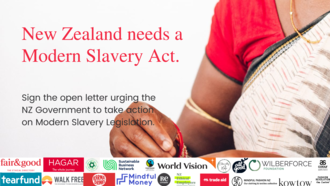

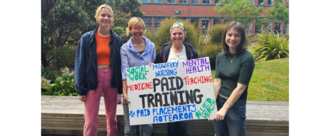.png)
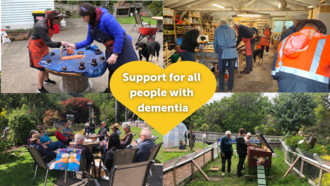.png)
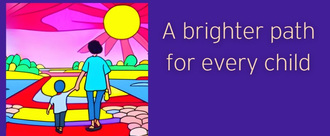
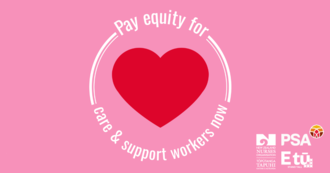.png)

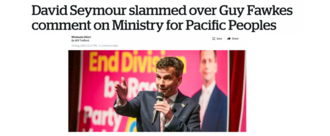.png)

.png)
